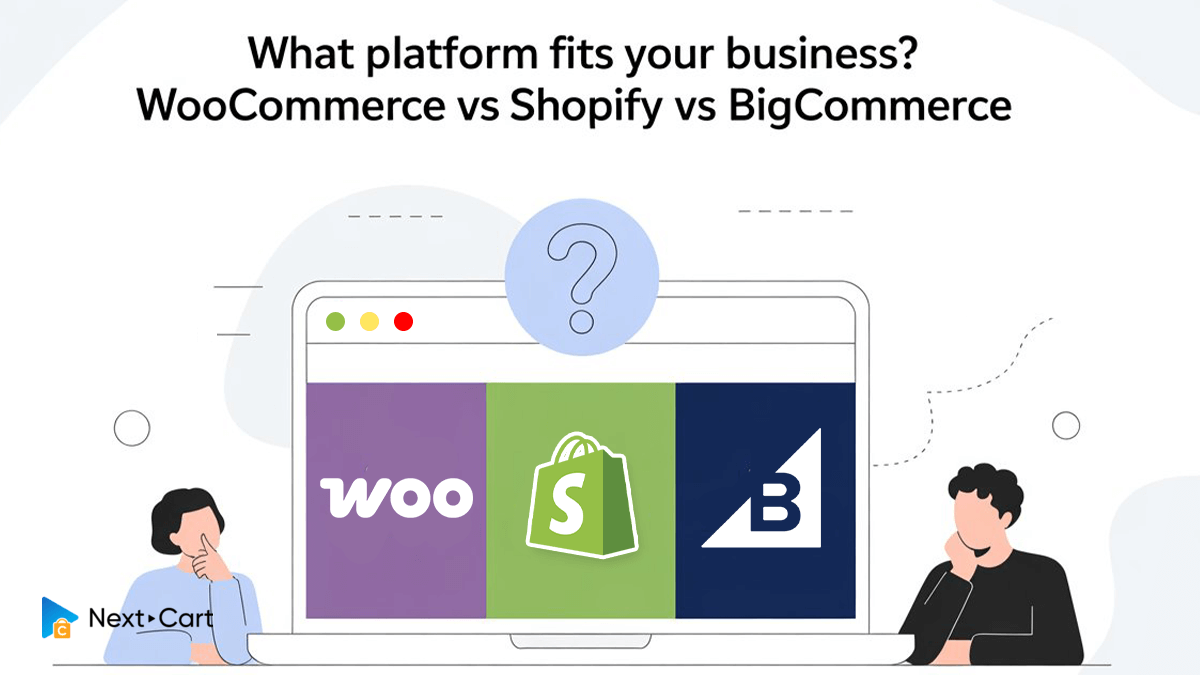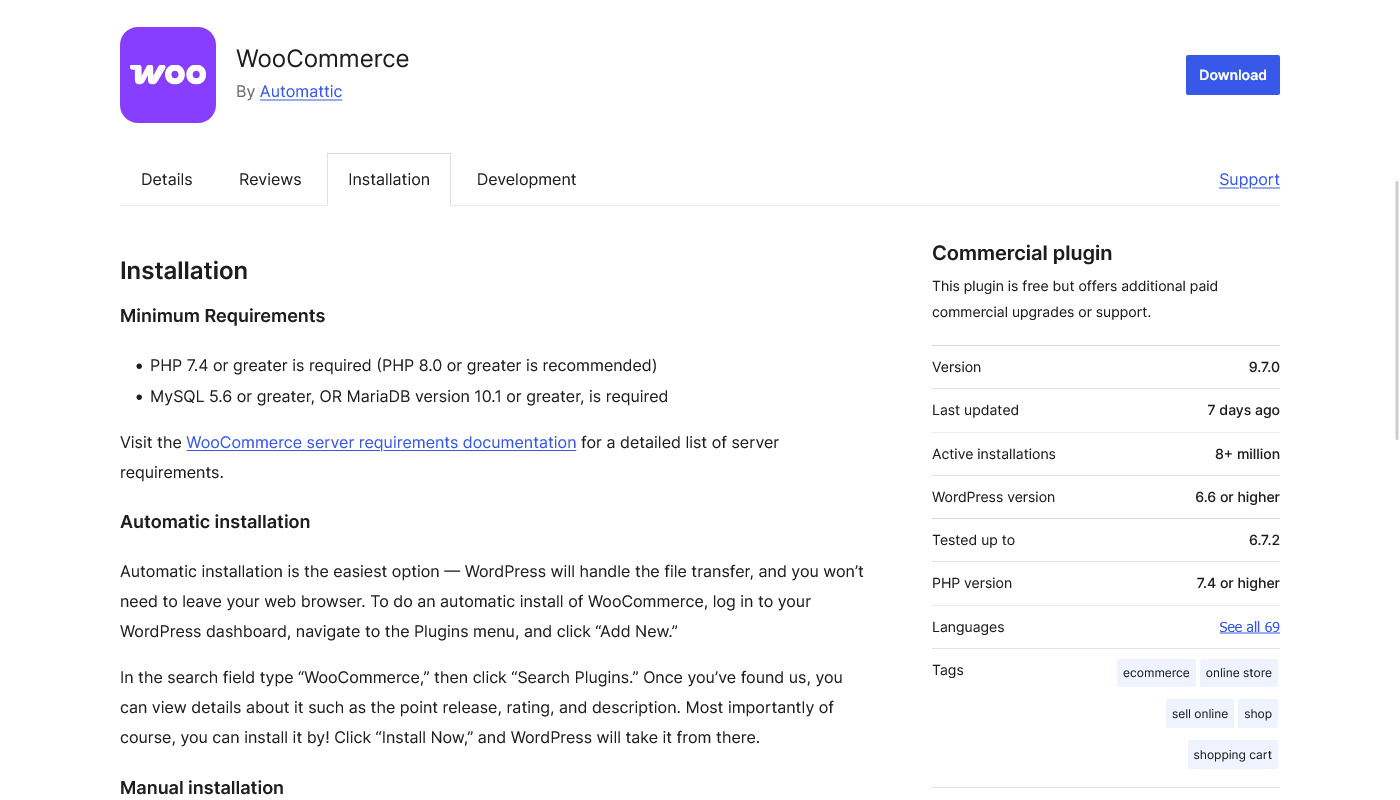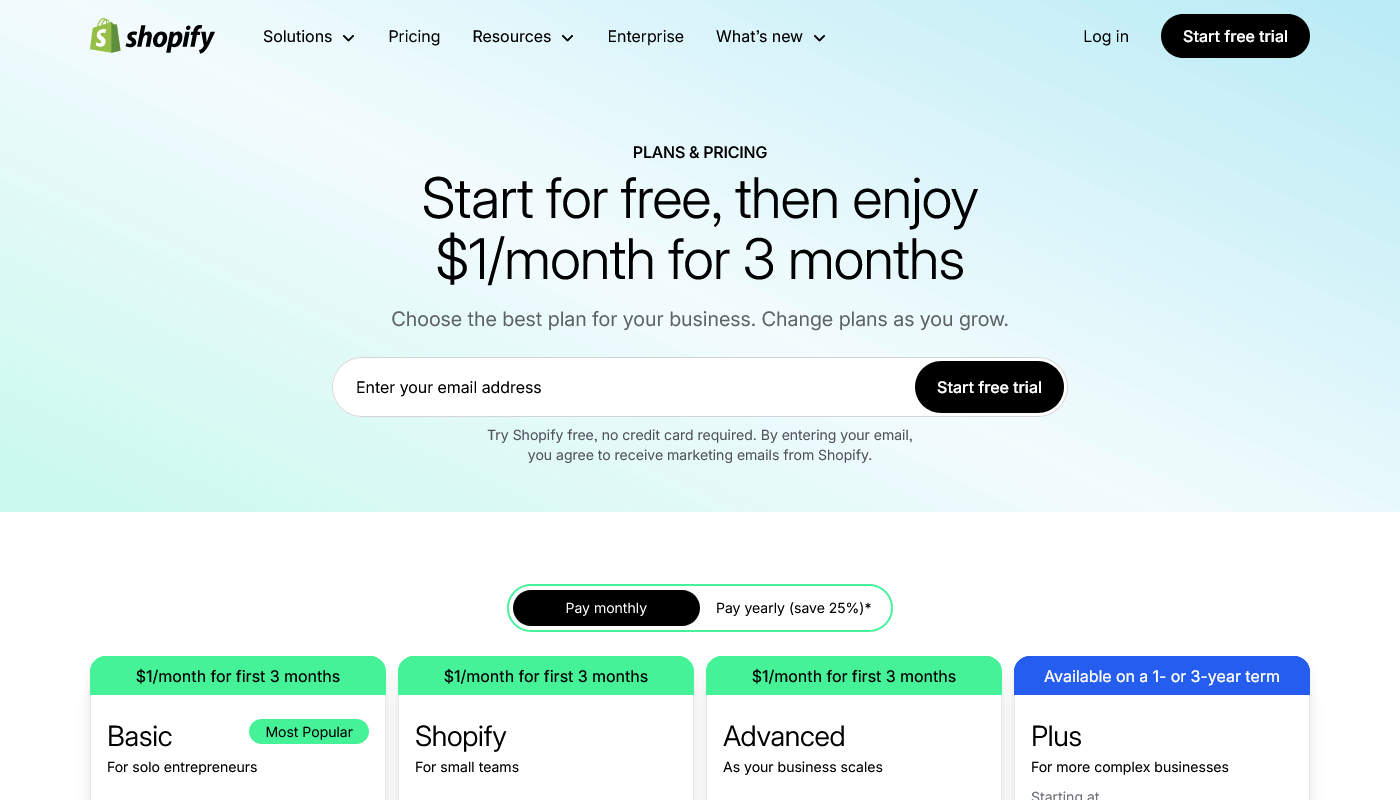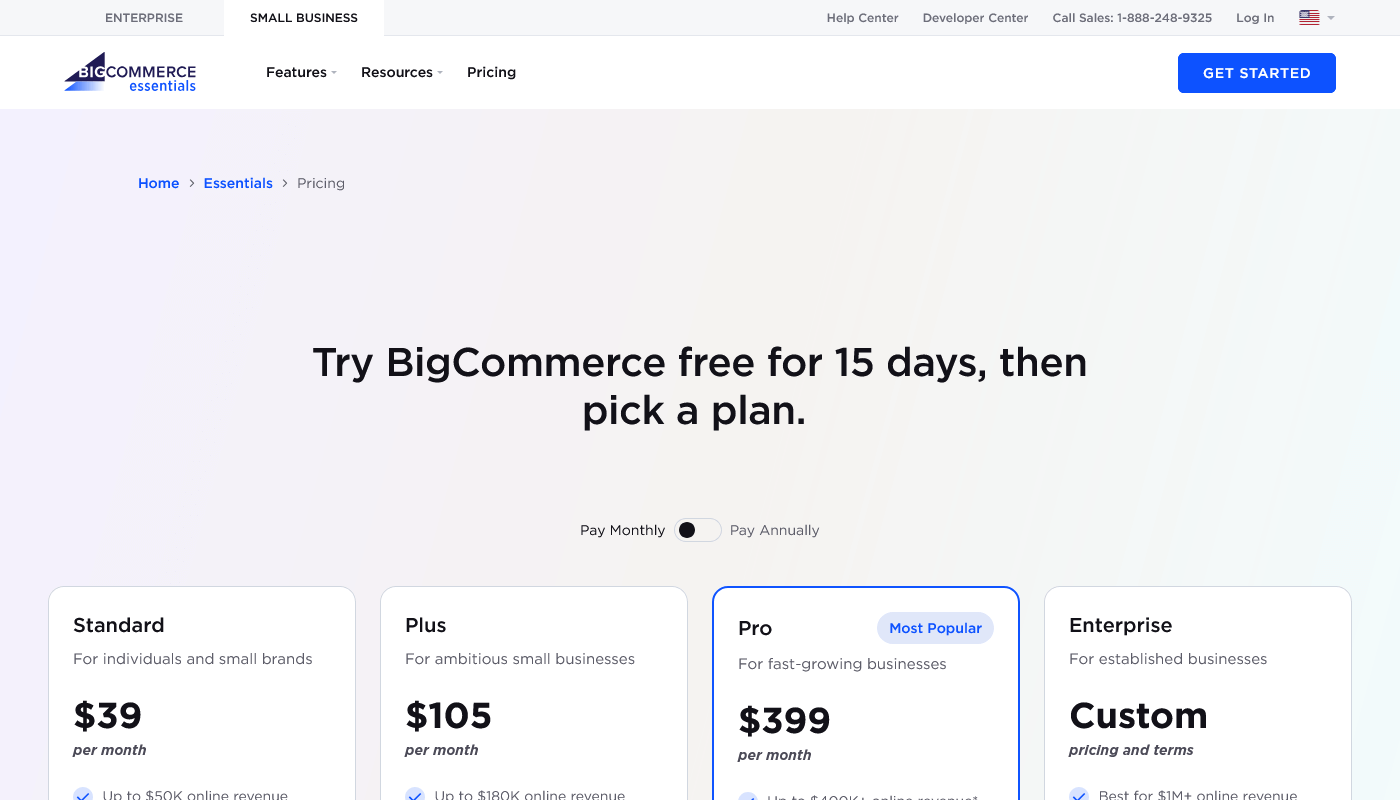
The right eCommerce platform is among the foundations for a successful business. When picking one, it is not about choosing one with the most features or definitely not the cheapest one. Find the platform that aligns with your business model, your team’s strengths, and your long-term goals. With the right choice, you have the flexibility to streamline your operation and scale.
Having guided thousands of online stores through their platform migration, Next-Cart has noticed the most standout consideration among WooCommerce, Shopify, and BigCommerce. We also find that there is no “one-size-fits-all” solution, as each platform comes with its own advantages, trade-offs, and ideal use cases.
Let’s compare them head-to-head and choose the one that truly fits your business.
- Why platform choice matters in your eCommerce business
- WooCommerce – Flexibility for the tech-savvy
- Strengths of WooCommerce
- Challenges to Consider when choosing WooCommerce
- Best use cases of the WooCommerce platform
- Shopify – Simplicity and speed
- Strengths of Shopify
- Challenges to consider when choosing Shopify
- Best use cases of the Shopify platform
- BigCommerce – Enterprise-level flexibility
- Strengths of BigCommerce
- Challenges to consider when selecting BigCommerce
- Best use cases of the BigCommerce platform
- Comparing WooCommerce vs Shopify vs BigCommerce head-to-head
- How to choose the right platform for your business
- Come to Next-Cart for your transition!
- In Conclusion
Why platform choice matters in your eCommerce business
An eCommerce platform is the foundation of your entire business and will power your online store. The software will impact how to manage products and process orders and how customers experience your brand
Selecting the wrong platform can create costly fixes, and it seems challenging to select the right one. A system that looks affordable upfront might require expensive add-ons later. Or a platform that is easy to launch may struggle in a growing catalog. And an option that feels flexible could demand constant technical oversight. Unfortunately, these hidden challenges often reveal themselves after store owners are locked in, making it urgent to move.
On the other hand, the right platform supports your current needs and still has room for you to grow further. Importantly, it matches your team’s skill set, so you have the flexibility for any small update without relying on outside help, from expanding into new sales channels to adding wholesale operations.
In short, an eCommerce platform is not just a tool. It is considered a long-term partner in your success when it fits your business model, resources, and vision.
WooCommerce – Flexibility for the tech-savvy

WooCommerce Plugin
WooCommerce is the go-to choice for stores already using WordPress. The platform will give WordPress users complete control over their online store. In the meantime, it is more suitable for teams with technical expertise or those who can access skilled developers. It is an open-source platform that needs more hands-on aspects to run.
Strengths of WooCommerce
As an open-source solution, WooCommerce provides users with great flexibility, allowing them to customize almost all aspects of their store. You can access thousands of free and premium plugins to add more functionality to your store. In addition, you can pair them with available themes to fit your brand identity
WooCommerce does not require a fixed monthly fee for use, giving you the freedom to allocate budget where it matters most, including marketing, design, or growth initiatives.
It seamlessly integrates with WordPress, which is ideal for businesses driving content and relying on blogs, SEO, and content marketing. WooCommerce is a natural environment for businesses to blend commerce and content with no limitations.
Challenges to Consider when choosing WooCommerce
The flexibility of WooCommerce means more responsibility when using it. WooCommerce doesn’t include hosting, so you need to get and manage your own provider. At the same time, you are in charge of maintaining updates, security patches, and performance optimization.
For non-technical users, these tasks can be overwhelming, and they need ongoing developer support from outside. Especially when your store grows, it will become complex and time-consuming to manage plugins and ensure everything runs smoothly.
Best use cases of the WooCommerce platform
WooCommerce is an excellent fit for merchants who:
- Already run a WordPress site and want to add eCommerce to it.
- Need deep customization to match unique workflows or product types.
- Willing to handle or outsource the technical aspects of hosting and security.
If you prioritize control and customization over simplicity, WooCommerce can be a powerful solution that can help you grow effectively.
Shopify – Simplicity and speed

Shopify
Shopify is a special choice for entrepreneurs, startups, and fast-growing brands that want to focus on selling instead of managing technology. Small to mid-sized businesses prefer Shopify because of its reliability and ease of use. They don’t need to pay much attention to handling coding or server management.
Strengths of Shopify
- Simplicity – Shopify is standing out thanks to its simplicity as a fully hosted platform. It handles all technical heavy lifting, including server setup, security, performance, and updates. Merchants don’t need to worry about those matters, so they can launch quickly and concentrate on growing.
- Excellent user experience – The platform also offers an intuitive dashboard, beautiful themes, and a robust app ecosystem. Those are essential to extend a store’s functionality. Moreover, with features like integrated payment processing, abandoned cart recovery, and multi-channel sales, it is easy to manage your store from one single hub.
- Reliability – Shopify is known for its excellent uptime, while the software can also handle sudden traffic spikes. Therefore, it is a great solution for businesses running promotions, flash sales, or viral campaigns. Also, the platform can grow when your sales grow without major disruptions.
Challenges to consider when choosing Shopify
When it comes to trade-offs, Shopify is less customizable than open-source platforms. It can limit some specific needs for users. While it has its app marketplace, using multiple apps can lead to higher monthly costs and some compatibility issues.
If you don’t use Shopify Payments, you are charged transaction fees that can add up when your sales grow.
Best use cases of the Shopify platform
Shopify is ideal for merchants who:
- Want a quick, low-maintenance setup with minimal technical work.
- Prioritize reliability, speed, and ease of use.
- Focus on scaling sales through multiple channels.
- Prefer paying predictable monthly fees over managing hosting and security themselves.
In short, Shopify is a great choice for brands that value simplicity and quick growth, as it allows online merchants to focus on the most significant factors, which are sales and customer experience.
BigCommerce – Enterprise-level flexibility

BigCommerce Essentials
BigCommerce is a strong platform for mid-sized businesses to enterprises that need advanced features. It is a popular choice of B2B companies, wholesalers, and multi-channel retailers, as it provides enterprise-grade capabilities, while it does not require the cost of a fully custom platform.
Strengths of BigCommerce
BigCommerce comes with a wide variety of built-in features. It is more advantageous than Shopify as it does not require multiple apps to achieve advanced functionality. BigCommerce includes hundreds of advanced tools, such as advanced product filtering, multi-currency support, custom pricing, and quote management.
The platform has an API-first architecture that makes it highly flexible to integrate with other systems. You can connect your store to ERP systems, CRMs, or custom applications to enable seamless workflow across your business ecosystem.
Additionally, BigCommerce shines in multi-channel commerce. Besides their online store, merchants can sell across multiple marketplaces like Amazon, eBay, and social platforms. Especially, it is managed on a centralized hub, allowing you to expand your sales footprint easily.
Challenges to consider when selecting BigCommerce
Consider that the platform has a steep learning curve when compared to Shopify. It appears unfriendly for beginners at first.
In addition, pricing is tiered based on annual revenue, meaning a higher-cost plan when your business grows. While it is fair for the feature set the platform provides, businesses should have their proper financial plans.
Best use cases of the BigCommerce platform
BigCommerce is best suited for merchants who:
- Require robust, enterprise-grade features from day one.
- Operate in B2B or wholesale environments with complex product catalogs.
- Need powerful integrations with existing systems.
- Plan to expand across multiple sales channels.
Do you aim to scale your business aggressively without too many add-ons on your online store? BigCommerce could be an excellent choice, offering you a comprehensive foundation.
Comparing WooCommerce vs Shopify vs BigCommerce head-to-head
While looking at each platform individually, it is essential to compare them against each other. Let’s compare them in certain aspects that matter for running a successful online store!
Cost & ROI
WooCommerce offers free core plugins, so it is budget-friendly at first. However, you need to cover the tasks of hosting, security, premium plugins, and ongoing maintenance.
Shopify offers monthly pricing plans that are predictable, but the costs can add up when you need more add-ons. Also, you are charged for transaction fees.
Compared to its two counterparts, BigCommerce has higher base pricing, but it includes more built-in features, so you will not have to rely on third-party apps.
In terms of ROI, it comes down to whether you prefer the upfront flexibility of WooCommerce, the predictable subscriptions of Shopify, or the all-in-one enterprise value of BigCommerce.
Customization
WooCommerce is the clear winner for providing merchants with full control over their store. As an open-source platform, it creates an ideal landscape for customization. However, it comes with more responsibility as well. Meanwhile, Shopify comes with limited customization features as it prioritizes simplicity and user-friendliness.
BigCommerce sits in the middle with its strong built-in functionality and API access. It allows a certain level of customization, while not requiring as much technical oversight as WooCommerce.
Scalability
You can scale with all three platforms, but in different ways. WooCommerce can grow with you as long as you still invest in server infrastructure and developer resources.
Shopify comes with solid hosting and reliable uptime that are highly scalable for fast-growing D2C and multi-channel businesses. On the other hand, BigCommerce stands out for enterprise or B2B scaling thanks to its advanced features like multi-storefronts and complex catalog management.
Support
WooCommerce provides a global community of developers, forums, and third-party agencies, where users can ask their questions and get answers from other experienced users
By contrast, Shopify offers 24/7 customer support, coming with an ecosystem of apps and partners. BigCommerce also provides strong customer service, especially for businesses with complex integration needs.
How to choose the right platform for your business
With so many options on the table, how do you know which platform is right for you? The key is to match the platform’s strengths with your business model, resources, and long-term goals.
- Budget – How much can you afford for the platform? WooCommerce appears cost-effective upfront, but it can cost you for hosting, plugins, and technical support. Shopify offers predictable monthly pricing, but the more apps you use, the more you pay. On the other hand, BigCommerce users pay according to their revenue, so you need to calculate the total cost as your business grows.
- Technical capacity – Consider WooCommerce if you have in-house expertise or access to developers. Otherwise, Shopify is a better choice, as it provides a straightforward, hosted solution that helps you avoid the technical side altogether. BigCommerce offers more advanced features without heavy customization.
Finally, a common mistake that many store owners make is to choose an eCommerce platform based on short-term convenience. Instead, think about where you want your business to be in three to five years. Or do you want to expand it internationally and into wholesale operations? Considering your long-term goals to save you costly adjustments down the road.
Come to Next-Cart for your transition!
Have you chosen the right eCommerce platform? It’s time to move your current store to a new house. That’s where Next-Cart comes in. We have helped thousands of businesses like yours move data from one system to another, as well as assisting you in making the best strategic decision for your business.
Our team works closely with you to understand your current store, including your structure, your team’s capabilities, and your long-term goals. From there, we can suggest the best platform, among WooCommerce, Shopify, or BigCommerce, which aligns with your needs.
Next-Cart goes with you through the entire migration process and ensures your products, customer data, and order history are transferred quickly and safely.
In Conclusion
Choosing the right eCommerce platform is the first step to long-term online business success. WooCommerce offers great flexibility for the tech-savvy, Shopify provides simplicity for fast-moving businesses, while BigCommerce delivers advanced features for enterprises with ambitious goals
The best choice is the one that aligns with your business model, team capabilities, and future road. Try to make the right choice to save you time and costs, as well as making way for sustainable growth.
Next-Cart can guide you through that decision, then move your store to the new platform smoothly. Leave all the technical complexities of the migration process to us, and you can focus on sales and strategy. Contact us today!